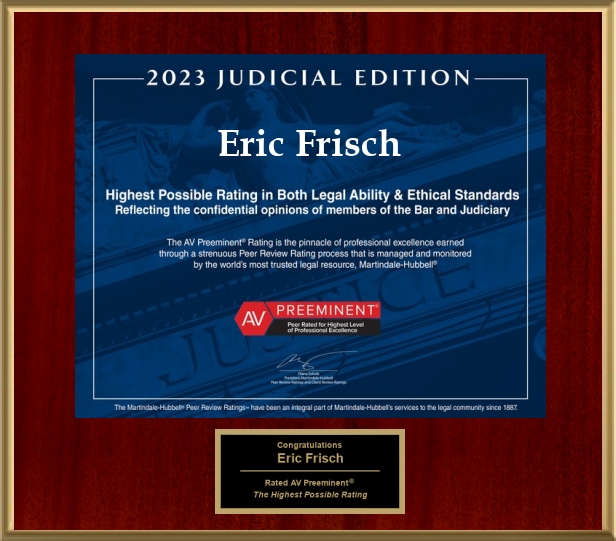Our Team
Education
Support Staff
Eric J. Frisch
׀ EMAIL:
׀ VCARD:
׀ LINKEDIN:
Education
Support Staff
Eric is an AV Preeminent rated lawyer, Partner, and a leader within the Firm’s Health Care, Professional Liability, and Employment Defense practices. In addition to his busy practice, Eric also serves as General Counsel for CSVL. Since graduating in 1996, Eric has built his practice around the trial of complex medical malpractice, personal injury, professional liability, and commercial cases. He has tried more than 35 cases in the Federal and state courts of Georgia. Eric also defends employers and related parties in employment claims, including discrimination claims and other employment torts. Eric is a registered mediator in Georgia and available for alternative dispute resolution. He is often asked to lecture on current medico-legal topics to lawyers and medical professionals for continuing education and in-service education.
Health Care Litigation:
Eric represents individual healthcare providers, medical practice groups, large multi-physician practice groups, hospitals, emergency department providers, hospitalist contract providers, and locum tenens providers, among others. He is known in particular for his skills in cases involving wrongful death, catastrophic birth injuries, complicated surgery and anesthesia issues, emergency room medicine, and dentistry.
Eric’s health care practice includes regulatory defense. Eric has defended physicians, physician assistants, nurses, and dentists before the Georgia licensing boards. He has also defended providers in administrative proceedings related to EMTALA, Medicare recovery audits, and other regulatory schemes. Eric is known for his experience in HIPAA, the Privacy Rule, the HI-TECH Act and he is available to consult on compliance and breach notification issues.
Eric also has written or contributed to several appellate decisions on medical malpractice, commercial, and constitutional issues in the Federal and state courts, including as amicus curiae. Eric has written several articles in national and state-wide publications on medical malpractice issues and he has been invited to speak on a variety of litigation and health care related topics. He administers a blog to report on the latest case law and Georgia legislative updates.
Legal Professional Liability and Commercial Litigation
Eric defends lawyers and legal professionals sued for professional malpractice, breach of fiduciary duties, and in proceedings before the State Bar of Georgia. He has defended lawyers involved in complex business transactions, real estate transactions, trusts and estates, and litigation matters.
In other commercial cases, Eric represented a large hotel franchisor for over 20 years. He has also handled business breakups, fraud and tortious interference cases, and cases involving trademark, copyright and other intellectual property issues. He has successfully registered trademarks, service marks, and copyrights before the U.S. Patent and Trademark Office.
Eric also defends employers and related parties in employment claims, including discrimination claims and other employment torts.
Mediation and Alternative Dispute Resolution
Eric is a registered mediator with the Georgia Office of Dispute Resolution. With a background representing plaintiffs in personal injury cases before doing defense work, Eric brings a “been there, done that” perspective to mediations. He is available for all types of personal injury and commercial litigation cases and he believes in the value of alternative dispute resolution for discovery matters, having used the format to resolve complex discovery issues himself over the years.
In addition to excelling in the courtroom, Eric volunteers his time as a judge in high school mock trial competitions. Eric is rated AV Preeminent by Martindale Hubbell, was included on the 2009 Georgia Rising Stars® list and has been named to Super Lawyers® list in Atlanta Magazine/Law and Politics since 2010. Eric was named the 2024 Litigation, Health Care Lawyer of the Year in Atlanta, GA by Best Lawyers®.






